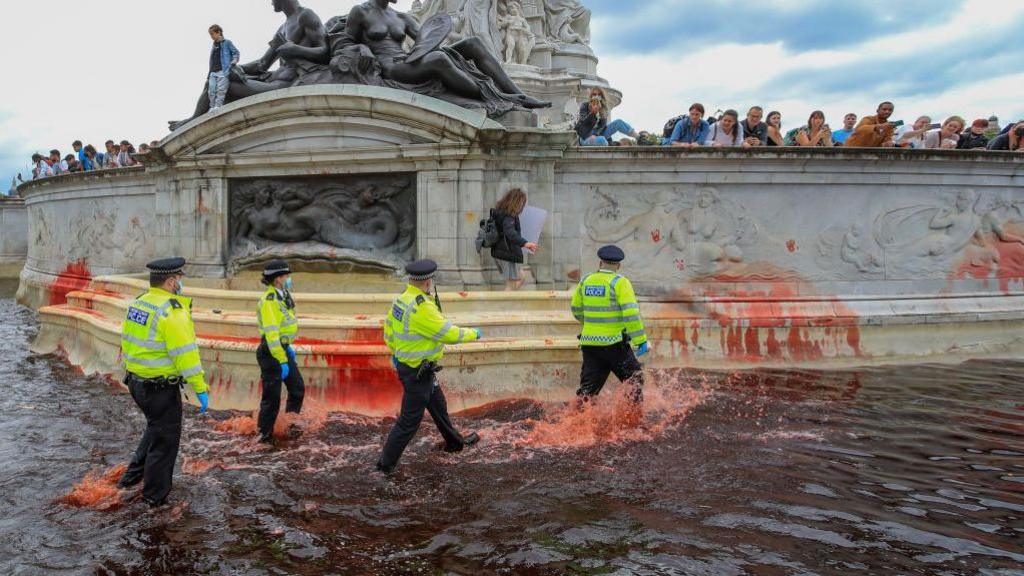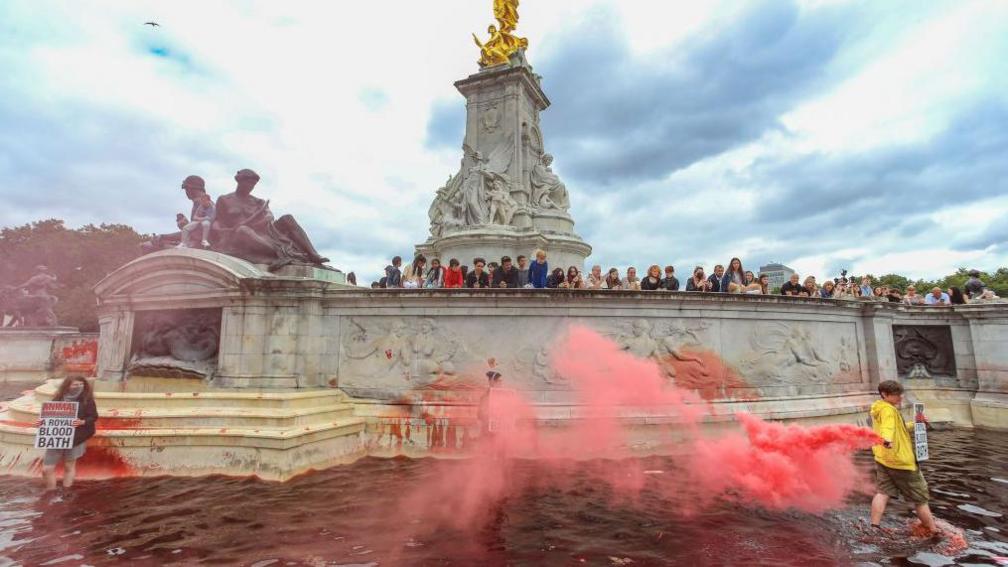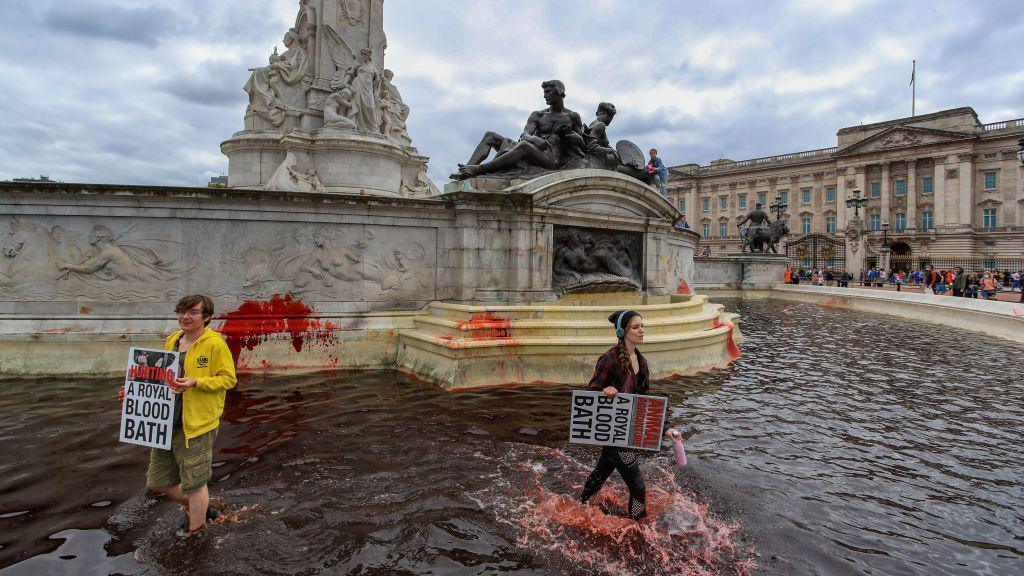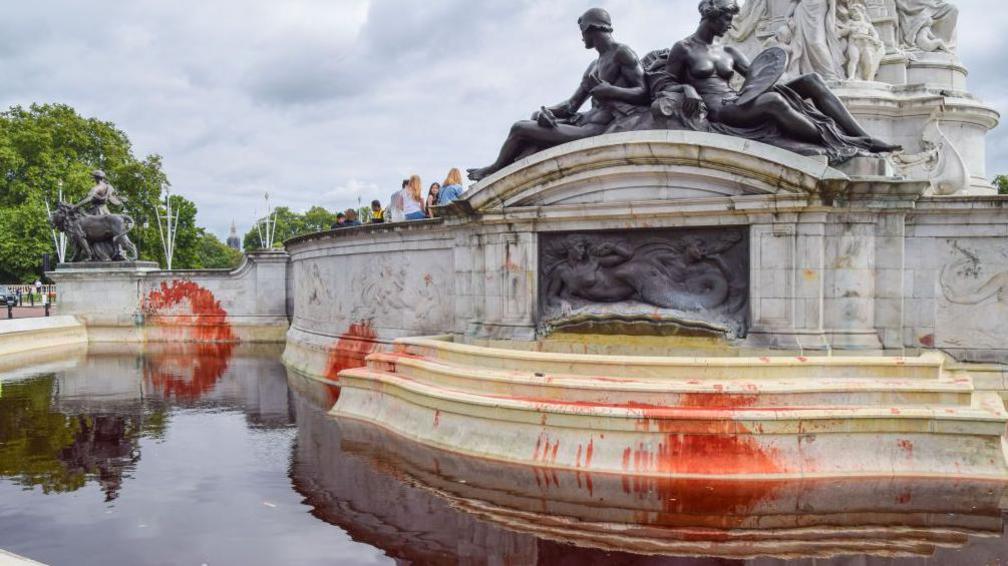Protesters guilty after Victoria fountain dyed red

Prosecutors said the dye not only turned the water red but also stained the stonework
- Published
A group of Animal Rebellion protesters has been found guilty of causing thousands of pounds of damage to a Buckingham Palace fountain by releasing red dye into it.
Louis McKechnie, 23, Christopher Bennett, 27, Riley Ings, 27, Claire Smith, 26, and Rachel Steele, 48, have been convicted at Southwark Crown Court of causing £7,080 of criminal damage to the Queen Victoria Memorial water feature on August 26, 2021.
The jury of 11 reached verdicts after seven hours and 56 minutes of deliberation.
The prosecution said the dye not only turned the water red but also stained the stonework of the fountain.

All of the defendants "accepted that they intended for that water to be turned red"
CCTV footage shows a number of the protesters dyeing their hands red and then leaving hand prints on the stonework of the fountain.
Prosecutor Ailsa McKeon said in a closing speech on Friday: "There is no dispute that red dye was in fact added to the water on that day and all of them have accepted that they intended for that water to be turned red, to create the impression of a bloodbath.
"What they each deny is that they intended or were reckless as to causing any damage and in fact that damage was caused at all."
Laura Stockdale, defending Steele and Bennett, argued the dye was designed to be added to bodies of water, including fountains, and Royal Parks "could have just left the red dye in the water to weaken as time passed".

Protesters could be seen in the water holding placards
She said turning the water red did not interfere with the structure of the monument nor affect its value.
"The most that the Crown can sensibly say is that it affected the aesthetics," Ms Stockdale said. "But members of the jury, isn't that just subjective? Is that really damage?"
Both defence barristers said their clients had neither intended to cause damage nor were they reckless as to whether the Grade I-listed fountain would be damaged.
Bennett, of Fish Ponds Road, Bristol; Ings, of no fixed address; McKechnie, of Claremont Road, Dorset; Steele, of Capworth Street, east London; and Smith, of Chadwick Street, Leeds, had each denied one count of criminal damage.
They are set to be sentenced on 18 October.
Listen to the best of BBC Radio London on Sounds and follow BBC London on Facebook, external, X, external and Instagram, external. Send your story ideas to hello.bbclondon@bbc.co.uk, external
Related topics
- Published21 August 2024
